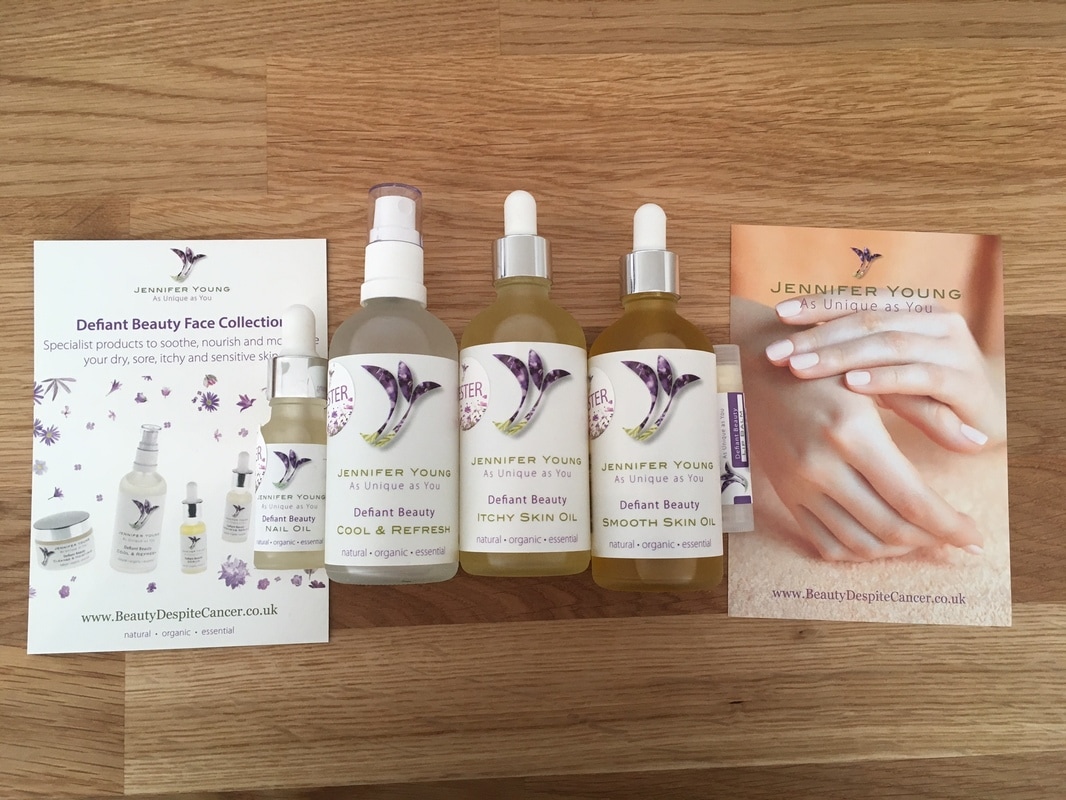|
Vitamin D is one of the most common deficiencies. It is estimated that 1 billion people globally have Vitamin D deficiency and 50% of the global population have Vitamin D insufficiency. It is estimated that about 90% of our Vitamin D comes from exposure to sunlight whilst a small proportion comes from our diet. Individuals with darker skin have increased amounts of melanin in their skin which decreases the efficacy of Vitamin D absorption which is why people with darker skin are at greater risk, particularly in the UK where from October to March, the rays from the sun are not strong enough to enable our bodies to make vitamin D. This is one of the reasons that the Department of Health and the NHS now recommend that everyone in the UK should consider taking a vitamin D supplement from October to March. The elderly, overweight and those living in the Northern Hemisphere are also at greater risk. A 2017 study additionally revealed that shift workers, health care workers and indoor workers are at increased risk of developing a deficiency due to reduced outdoor time and sunlight exposure. Apart from this, malabsorption syndromes such as celiac disease, short bowel syndrome, gastric bypass and cystic fibrosis may also lead to Vitamin D deficiency. Medications such as phenobarbital, carbamazepine, dexamethasone, nifedipine, spironolactone, clotrimazole, and rifampin induce hepatic p450 enzymes which speed up the degradation of vitamin D.
Why do we need Vitamin D? Vitamin D's primary and vital function in the body is to maintain blood levels of calcium. It does this through increasing the amount of calcium absorbed from food in the small intestine. This helps the body to form and maintain healthy bones. A deficiency in vitamin D can lead to osteomalacia or rickets. A deficiency of vitamin D also increases the risk of developing osteoporosis and experiencing fractures and broken bones. Apart from this, vitamin D deficiency has also been associated with increased risks of cancer development, particularly breast, colon and prostate cancers. Researchers have found that increased sunlight exposure and circulating vitamin D are associated with reduced occurrence and mortality in many types of cancer. Vitamin D is well known for its impact on the immune system and studies suggest that inflammation is often at the root of many modern autoimmune diseases including multiple sclerosis, rheumatoid arthritis, digestive disorders and high blood pressure. University of Aberdeen researchers studied patients in the North of Scotland which has the highest rate of MS in the UK who were treated during the winter with UV-B light therapy. Dr Anthony Ormerod, Clinical Reader in Dermatology at the University, said: “Our study shows that UV-B light, which mimics sunshine, can have a striking effect on the immune system of patients." In addition, a study in 2018 from Trinity College Dublin linked vitamin D deficiency with an increased risk of depression of over 75% over a four year follow up period. What are the symptoms of Vitamin D deficiency? There is evidence to suggest that people with vitamin D deficiency are at increased risk of developing health conditions such as osteoporosis, autoimmune conditions, depression and cancer. Symptoms can also include weakness, chronic fatigue, depression, insomnia, anxiety, weakened immune system, inflammation and weak or broken bones. We would recommend that you are tested for vitamin D deficiency if you experience any of these symptoms. Vitamin D tests are available on the NHS and in our Nourishing Insights clinic. This is a simple pin prick blood test which can be done at home. Find out more about Vitamin D testing and order here. How can I optimise my vitamin D levels? The main way in which we obtain vitamin D is from exposure to natural sunlight from the sun. When UVB rays land on the skin, a substance in the skin, 7-dehydrocholestrol is converted into vitamin D3. There are two types of supplemental vitamin D; Vitamin D2 and Vitamin D3. The type of vitamin D our bodies makes naturally is vitamin D3. Whilst the body is able to convert some D2 for use, vitamin D3 is believed to convert 500 times faster than D2 and is estimated to be four times more effective in humans. Most experts suggest spending 20 minutes in the sun without suncream (suncream blocks the absorption of vitamin D) to enable your body to absorb vitamin D naturally without damaging the skin. For darker skinned people, the time recommended increases to around 40 minutes. If you do not want to expose your skin to the sun, you should use a good quality supplement to make sure you are obtaining enough vitamin D to protect your immune system, bones, joints and general health. Are there any food sources? Sunlight is the best source of vitamin D and it is difficult to obtain vitamin D only from food. However, there are some food sources and research suggests that eating foods which are rich in Vitamin D can help you acquire more. Some of the best sources of vitamin D in foods are halibut, mackerel, salmon, herring, trout and eggs. Mushrooms are one of the only plant sources of vitamin D and they acquire vitamin D the same way the human skin does, through exposure to the sun. The vitamin D content of mushrooms is increased through exposure to Ultra Violet light. The quantity of vitamin D in mushrooms can vary dependant on how they are grown. Who should supplement and how much should I take? Current Department of Health recommendations suggest the following ‘at risk’ groups should be using a vitamin D supplement all year round. These include:
From October to March the Department for Health recommends that everyone should supplement with Vitamin D. However, bare in mind that many of us now are spending little time in the sun and when we are we are wearing sun creams or covering up. Even in hot countries where people are going from air conditioned homes to offices and malls with little exposure to sunshine has led to a global epidemic with deficiency. For example, in countries such as Pakistan it is estimated that 80% of the population is deficient. In addition, it is estimated that vitamin D has a half life of about 15 days which would mean that every 2 weeks our levels halve without ongoing exposure to sunshine or supplementation. Therefore, your holiday in the sun in February is not going to help you in April. Dosages vary according to age, bodyweight and level of deficiency. Testing is recommended to optimise your dose. Are there other nutrient considerations when supplementing with Vitamin D? Vitamin D and K2 Vitamin D and Vitamin K2 work synergistically with each other to ensure that calcium is directed out of the arteries and into the bones where it helps improve bone density. Without enough vitamin K2 calcification within the arteries can occur. We normally advise a combination product of D and K2 for the post-menopausal age group. Vitamin D and Magnesium Magnesium plays a key role in determining how much vitamin D our bodies can make. It’s suggested that people whose magnesium intake is high are less likely to have a vitamin D insufficiency than people whose magnesium levels are low. It’s also claimed that magnesium supplementation increases vitamin D levels in people who are deficient in the vitamin, but causes a reduction in people whose intake is high. Too much vitamin D can increase calcium levels, which in turn can lead to certain health complications. To learn more about magnesium and signs of deficiency, have a look at our blog. To find out more about Vitamin D supplementation contact us here, or come and visit us at 44 St Andrew Street Aberdeen. Nutritional Therapy consultations are also available on Zoom and skype. More information here.
1 Comment
Mushrooms have been used in traditional Chinese medicine for centuries but it is only in the last few decades that scientific studies have revealed some of their health benefits. There are over 100 types of mushrooms but some of the most studied for their health benefits are Shiitake, Cordyceps, Maitake, Oyster, Lion's Mane, Enoke, Reishi and Chaga. Mushrooms contain important vitamins, minerals and enzymes that have been shown in numerous scientific studies to boost the immune system. They also contain bioactive molecules that have anti viral, anti inflammatory and antioxidant abilities. Due to their immune boosting properties, there has been a lot of research into the effect of mushrooms in Cancer prevention. Some studies have suggested that mushrooms can inhibit tumor formation and stop cell mutation whilst protecting healthy cells and increasing the bodies capacity to detoxify itself from harmful substances. According to the medical journal 3 biotech , "mushrooms anti-cancer compounds play a crucial role as a reactive oxygen species inducer, mitotic kinase inhibitor, anti-mitotic, angiogenesis inhibitor and lead to apoptosis, and eventually checking cancer proliferation." In 2000, a report published by Cancer Research UK and the University of Strathclyde looked at different types of mushroom and cancer. Pure extracts of exotic mushrooms such as shiitake, enoke, maitake and oyster were shown by researchers in China, Japan and Korea to have anti-tumour properties and be capable of stimulating the immune system to fight disease. In addition, the use of medicinal mushrooms was found to reduce the side effects of both chemotherapy and radiotherapy, including sickness and hair loss. Another study published in the World Journal of Gastroenterology looked at the effects of chaga mushroom on cancerous human liver cells. The research reveals that chaga extract may be able to prevent liver cancer cell growth, which it has been thought make it a potential treatment for cancer in the liver. Medicinal mushrooms have also been shown to have special fighting abilities against deadly multi-resistant bacterial strains and microorganisms responsible for gut and skin problems. Interestingly, some substances present in antibiotics such as penicillin and tetracycline are derived from mushroom fungal extracts. Many types of mushrooms help to lower cholestrol levels naturally, support energy and improve brain function. Mushrooms such as Reishi are also considered to be adaptogens that lower cortisol and help your body to deal with stress and anxiety. Reishi mushrooms have also been shown to improve memory and concentration and because they contain lanostan, an antihistamine, they can also be beneficial for arthritis and soothe muscle aches. Cordyceps mushrooms can help to increase stamina and endurance due to their ability to help the body produce ATP. These mushrooms are also used as an adaptogen to increase energy and reduce fatigue. A 2010 study published in the Journal of Alternative and Complementary Medicine demonstrated that supplementation with Cs-4 (Cordyceps sinensis) improved exercise performance and contributed to overall markers of wellness in older adults. The study into medicinal mushrooms is a vast subject and there are many other health benefits and ongoing studies and research in the area. If you would like to learn more about medicinal mushrooms, pop into the shop and ask to speak to our nutritional therapist at Nourishing Insights, 44 St Andrew Street, Aberdeen. "Women don't stop being women, just because they have cancer." - Jennifer Young
Many of you will have seen our Beauty Despite Cancer ‘Defiant Beauty’ range and we thought we would tell you a bit more about them. Designed by Jennifer Young in conjunction with North Staffordshire University Hospital’s Oncology team they have been specially designed for those going through cancer treatment. This means that they are effective at supporting the side effects of Chemotherapy and Radiotherapy. Jennifer set out to create a beautiful range ensuring that they were:
So where is oestrogen found? It’s a naturally occurring human hormone. However, there are sources of Oestrogen-mimicking compounds and our bodies don’t know the difference. These include:
Common Questions: Why would someone going through cancer choose Defiant Beauty?
|
Amazon Associates DisclosureNourishing Insights is a participant in the Amazon EU Associates Programme, an affiliate advertising programme designed to provide a means for sites to earn advertising fees by advertising and linking to Amazon.co.uk. Archives
December 2023
|
WHAT OUR CLIENTS ARE SAYING“I did Nutritional Therapy with Beverley and it was life changing. I highly recommend it!” Allison Blakely (Glasgow)
|
Contact Us |





